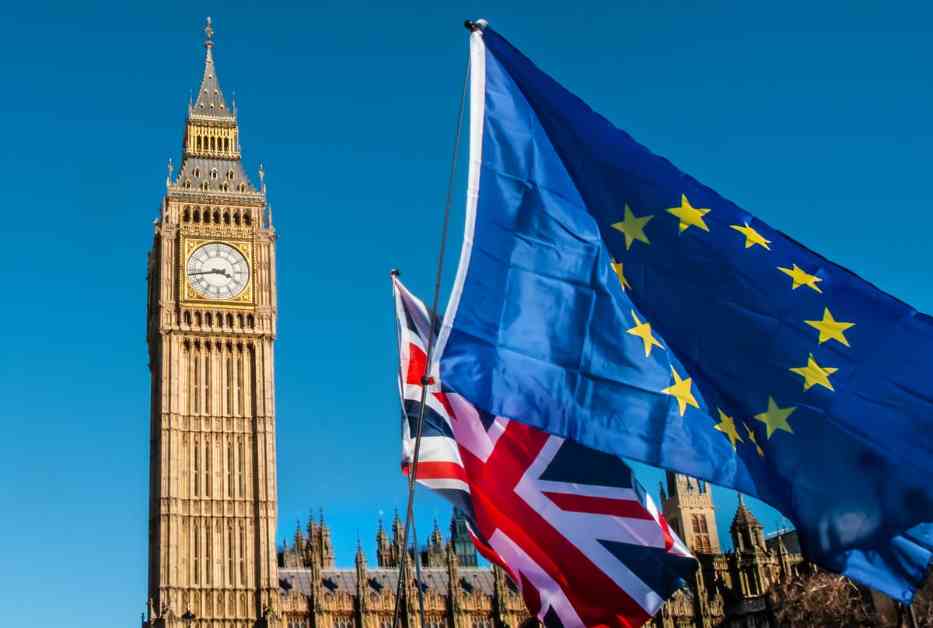The impact of Brexit on Britain’s economy is still looming ahead, according to Treasury minister Tulip Siddiq. She mentioned that 60% of the impact is yet to be fully realized, based on forecasts from the Office for Budget Responsibility (OBR). The OBR predicts a long-term shrinkage of the economy by 4% due to Brexit, with imports and exports expected to be 15% lower than if the UK had remained in the EU.
This new revelation marks the first attempt by the government to quantify the extent of the impact felt thus far. Critics have seized upon this warning as a call to action for ministers, especially as Sir Keir Starmer seeks to reset post-Brexit relations with EU leaders. Naomi Smith, chief executive of Best for Britain, urged the prime minister to pursue closer ties with the EU to navigate through the aftermath of Brexit and mitigate further damage.
Stella Creasy, chair of the Labour Movement for Europe, emphasized the importance of addressing trade barriers, visa issues, and bureaucratic hurdles faced by businesses in the next 18 months. She stressed the need for political will to rectify the problems arising from Brexit as swiftly as possible.
In response to a parliamentary question, Treasury minister Tulip Siddiq disclosed that Britain has already paid £23.8bn to Brussels as part of its financial obligations post-Brexit, with an additional £6.4bn still pending. While some proponents of Brexit like Stuart Coster highlighted the economic benefits and growth opportunities outside the EU, critics such as Molly Scott Cato argued that the UK’s economy may struggle to compete globally without the advantages of being part of the EU.
The government, however, remains committed to making Brexit work for the British people by enhancing trade relationships with the EU, removing unnecessary trade barriers, and looking towards the future. Despite the challenges and uncertainties ahead, the focus is on moving forward and maximizing the potential benefits of Brexit for the UK economy.












